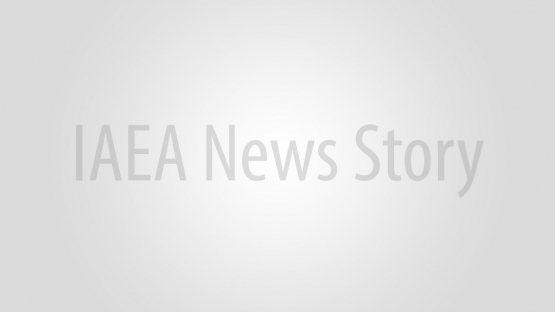Throughout May, the IAEA hosted a School for Drafting Regulations on Radiation Safety, which successfully came to a close at the end of the month. The event was a fruitful occasion in which the participants were able to share experience and knowledge in drafting and revising regulatory documents on radiation safety and security matters in accordance with IAEA requirements. In particular, the School provided a unique opportunity for neighbouring countries to examine their national regulations and use each other's experience in the creation and revision of their own.
The participants of this School were drawn from Russian-speaking countries, including Armenia, Azerbaijan, Belarus, Georgia, Kazakhstan, Kyrgyzstan, Lithuania, Tajikistan and Ukraine.
The participants spent a full month working together with high level international experts on developing, updating or revising their own national regulations to better comply with IAEA standards. At the end of the course each country had developed a draft document on radiation safety, which is in line with IAEA requirements and is available for further development and completion in their home countries. Instead of the conventional training approach, international experts acted as mentors, guiding the drafting process and sharing their own international experience.
"It was an excellent opportunity to learn more about the international safety standards and related IAEA documents. The School provided a platform for analysing our own national safety regulations, identifying gaps and inconsistencies and developing appropriate drafts or proposals to address them," said Ruslana Tripailo, participant from Ukraine.
The on-going series of Schools is organized under the auspice of TC Europe to expedite the drafting of new or revision of existing, national regulations to ensure compatibility with the relevant IAEA requirements for safety to the extent possible. Where appropriate, other safety standards, such as the EC Directives are taken into account. The School helps to streamline the drafting process among Member States, allowing for better consistency and considerable time saving as opposed to the usual method of sending experts to Member States to work on improving national regulations. The School offers a great assortment of available IAEA and international experts, who can help participants to draft regulations, especially when it requires detailed knowledge in certain areas. In addition, it creates an ideal forum for Member States to discuss problems and situations in their countries, and share experience in drafting regulations.
Each School in the on-going series is tailored to address the needs of a specific group of countries made up of Member States that share certain elements, such as language, regulatory culture or the current status of their regulatory infrastructure. Many countries that participated in the most recent School have faced similar challenges in the post-Soviet era with regards to development and implementation of new legislation and regulations. Hence, they have comparable needs in drafting and updating their regulatory documents to comply with IAEA standards. Also, a number of these countries share borders, and may therefore, seek to harmonize some parts of their national regulations.
This particular School was carried out in Russian. It helped the participants to better understand the basic safety standards, freely communicate with each other and with experts, and prepare new draft regulations according to their own legislative framework while taking IAEA requirements into account.
"Organizing this course in Russian was very useful. We received valuable advice on how to draft regulations from high level international experts in a language common to all participants," said Natavan Amirova, participant from Azerbaijan. She added, "I hope that this kind of event will be held more frequently to discuss the issues in more detail."
Due to the successful outcome and positive feedback, it is foreseen that the School will take place again in the coming years. The next session is anticipated to be carried out in early 2012 within the scope of the on-going TC project RER9096. The format and content of the sessions will be further developed based on the past experience and built according to the specific and current needs of the interested countries of the region.
Improving Regulatory Documents on Radiation Safety Through a Series of IAEA Schools
13 Sep 2011
Related resources
More
Last update: 24 Jan 2018


